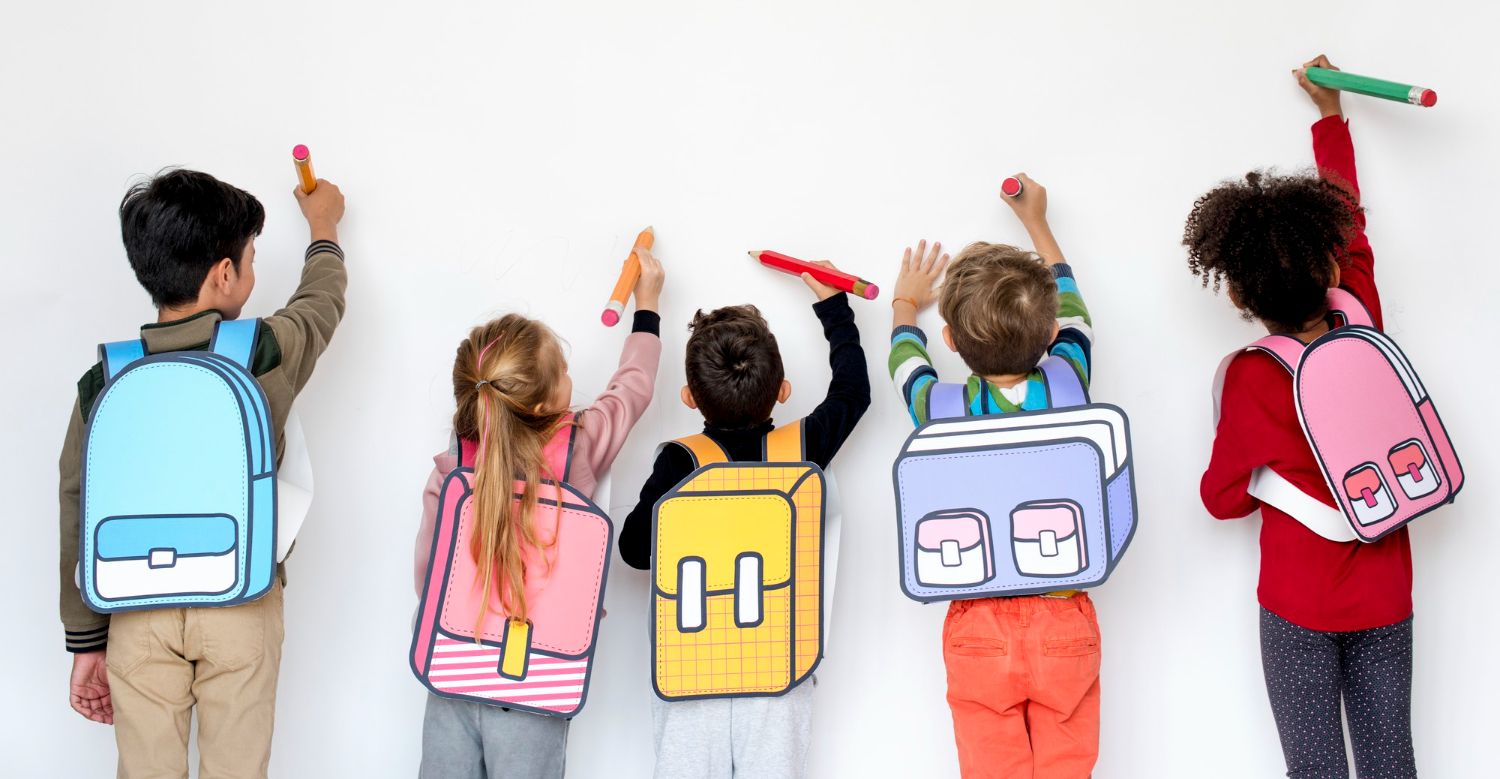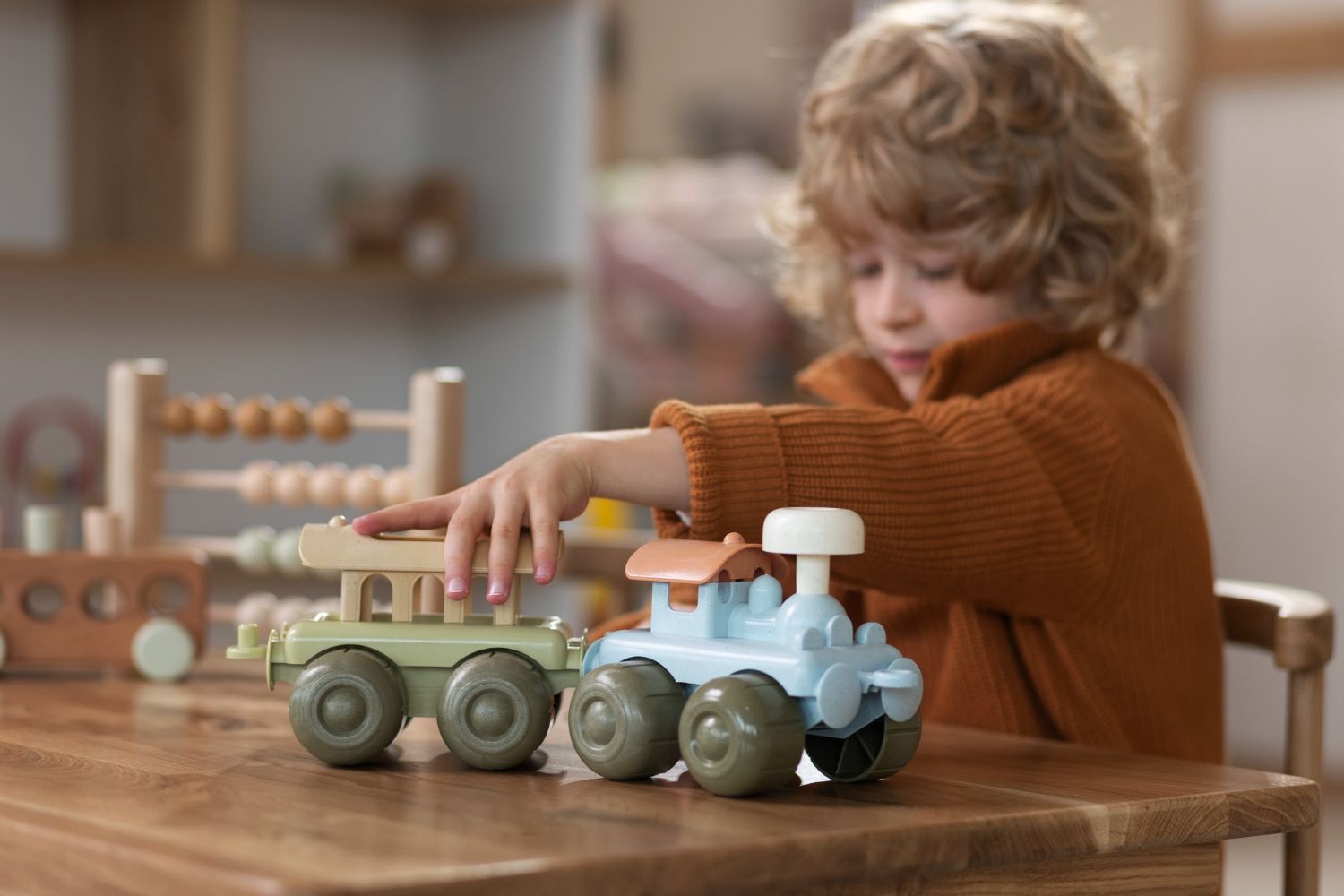Kokie žaislai reikalingi darželiams ir mokymo įstaigoms?

Kai kurie svarbiausi žaislų tipai darželiams yra šie:
- Kaladėlės, konstruktoriai ir statybiniai žaislai: šie žaislai skatina vaikus lavinti erdvinį suvokimą, problemų sprendimo įgūdžius ir kūrybiškumą.
- Žaidimų virtuvės ir maisto žaislai: šie žaislai leidžia vaikams žaisti lavinant savo vaizduotę, žaisti vaidmenis ir lavinti socialinius įgūdžius žaidžiant kartu.
- Meno ir amatų reikmenys: šie žaislai skatina kūrybiškumą ir saviraišką, kartu lavina smulkiąją motoriką.
- Galvosūkiai ir stalo žaidimai: šie žaislai skatina problemų sprendimą, logiką ir kritinį mąstymą.
- Knygos ir pasakojimo rekvizitai: šie žaislai lavina kalbos, supratimo įgūdžius ir skatina skaityti.
- Lauko žaidimų įranga: Lauko žaidimų įranga, tokia kaip sūpynės, čiuožyklos ir laipiojimo konstrukcijos, palaiko bendrą motorikos vystymąsi ir fizinį aktyvumą.
Kalbant apie tai, kas labiausiai lavina ir ugdo vaikus darželyje, svarbu pažymėti, kad auklėtojų, globėjų ir tėvų vaidmuo vaikų mokymuisi ir vystymuisi yra labai svarbus. Darželių mokytojai ir auklėtojai yra apmokyti padėti vaikų vystymuisi įvairiose srityse, įskaitant socialinį-emocinį, pažintinį ir fizinį vystymąsi. Jie suteikia galimybę mokytis žaidimu, skatina socialinius įgūdžius, skatina vaikų vystymąsi per amžių atitinkančią veiklą ir patirtį. Tačiau tėvai ir globėjai taip pat atlieka labai svarbų vaidmenį palaikydami vaikų mokymąsi ir vystymąsi, suteikdami jiems palankią namų aplinką, reguliariai bendraudami ir žaisdami su vaikais, remdami vaiko interesus ir mokymosi tikslus.

Žaislai yra esminė vaiko vystymosi dalis, todėl nenuostabu, kad darželiai juos įtraukia į savo mokymo programas. Žaislai gali padėti vaikams išsiugdyti įvairius gebėjimus – nuo fizinių ir pažintinių iki socialinių ir emocinių. Šiame straipsnyje apžvelgsime kai kuriuos žaislus, kurie dažniausiai naudojami vaikų darželiuose, skatinantys vaiko vystymąsi.
Statybiniai konstruktoriai ir kaladėlės
Statybinės kaladėlės yra klasikinis žaislas, kuris buvo naudojamas kartoms ir dėl geros priežasties. Jais ne tik smagu žaisti, bet ir padeda vaikams lavinti smulkiąją motoriką, erdvės suvokimą ir kūrybiškumą. Konsturktorių kaladėlės būna įvairių formų, dydžių ir spalvų, todėl vaikai gali tyrinėti savo kūrybiškumą ir kurti skirtingas konstrukcijas. Jie taip pat gali būti naudojami mokant vaikus pagrindinių matematikos sąvokų, tokių kaip skaičiavimas, rūšiavimas ir modeliai.
Galvosūkiai
Dėlionės – dar vienas klasikinis žaislas, kurį galima rasti daugelyje darželių. Galvosūkiai būna įvairių formų, pavyzdžiui, dėlionės, formų galvosūkiai ir dėlionės lentos. Dėlionės padeda vaikams lavinti problemų sprendimo įgūdžius, pažinimo gebėjimus ir kantrybę. Bandydami sujungti dalis, vaikai mokosi kritiškai mąstyti ir pagerinti savo koncentraciją. Dėlionės taip pat moko vaikus, kaip atkakliai įveikti iššūkius ir ugdyti pasiekimo jausmą, kai jie juos įveikia.
Play-Doh
Play-Doh yra populiarus žaislas, su kuriuo vaikai mėgsta žaisti. Tai spalvingas ir formuojamas molis, iš kurio galima kurti įvairias formas, gyvūnus ir daiktus. Play-Doh padeda vaikams lavinti smulkiąją motoriką, kūrybiškumą ir vaizduotę. Vaikai rankomis gali lipdyti ir formuoti molį, o tai pagerina jų rankų ir akių koordinaciją bei miklumą. Play-Doh taip pat skatina vaikus tyrinėti savo vaizduotę ir įvairiais būdais išreikšti savo kūrybiškumą.
Muzikos instrumentai
Muzikos instrumentai – smagus būdas supažindinti vaikus su muzikos pasauliu. Darželiuose dažnai yra įvairių muzikos instrumentų, tokių kaip ksilofonai, būgnai, kratytuvai. Grojimas muzikos instrumentais padeda vaikams lavinti klausymo įgūdžius, rankų ir akių koordinaciją bei atmintį. Tai taip pat moko juos apie ritmą, melodiją ir harmoniją. Muzikavimas kartu skatina vaikus dirbti komandoje ir lavinti socialinius įgūdžius.
Persirengimo drabužiai
Persirengti drabužiai – tai smagus būdas vaikams panaudoti savo vaizduotę ir tyrinėti įvairius vaidmenis. Darželiuose dažnai būna įvairių puošnių drabužių, tokių kaip kepurės, kostiumai ir aksesuarai. Apsirengimas leidžia vaikams žaisti vaidmenimis ir lavinti savo socialinius bei emocinius įgūdžius. Jie gali apsimesti gydytojais, ugniagesiais, virėjais ir kt., o tai padeda suprasti įvairias profesijas ir ugdyti empatiją. Apsirengimas taip pat skatina vaikus bendrauti tarpusavyje, lavina kalbos įgūdžius.
Lauko žaislai
Lauko žaislai, tokie kaip kamuoliukai, šokdynės, dviračiai, yra būtini vaikų fiziniam vystymuisi. Žaidimas lauke padeda vaikams lavinti stambiąją motoriką, koordinaciją ir pusiausvyrą. Tai taip pat skatina juos tyrinėti savo aplinką ir ugdyti smalsumą. Žaidimai lauke taip pat suteikia vaikams galimybę bendrauti su bendraamžiais, lavinti komandinio darbo įgūdžius, išmokti derėtis ir spręsti konfliktus.
Stalo žaidimai
Stalo žaidimai yra puikus būdas smagiai praleisti laiką vaikams ugdant pažintinius ir socialinius įgūdžius. Stalo žaidimai, tokie kaip latakai ir kopėčios, saldainių žemė ir atmintis, padeda vaikams išmokti pakaitomis, laikytis taisyklių ir dirbti kartu. Stalo žaidimai taip pat gerina vaikų atmintį, dėmesį, problemų sprendimo įgūdžius. Stalo žaidimai yra įdomus ir įtraukiantis mokymosi būdas, o juos baigę vaikai jaučia pasisekimą.
Apibendrinant galima teigti, kad žaislai atlieka esminį vaidmenį darželiuose ir gali padėti vaikams ugdyti įvairius gebėjimus. Statybinės kaladėlės, galvosūkiai, Play-Doh, muzikos instrumentai